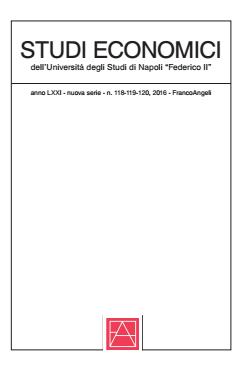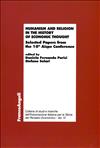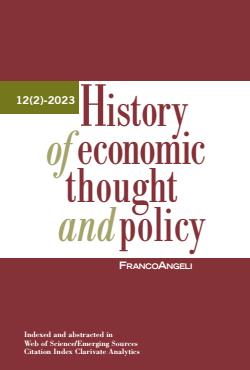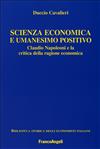
LIBRI DI DUCCIO CAVALIERI


Selected Papers from the 10th Aispe Conference
Humanism and religion have been two reference points for economists who expressed their perplexities on the conception of man and society adopted in mainstream economics. This volume contains a selection of twenty papers presented at the X conference of the Italian Association for the Study of Economic Thought. The theme of the conference was Humanism and Religion in the History of Economic Thought.
cod. 363.81

The paper deals with a fundamental issue in the history of economic thought: the alleged separability in the classical analysis of distinct and sequential logical stages. It will be recalled that the contested idea of an analytical separation of the theory of value (relative prices), the theory of production (relative quantities) and the theory of the social distribution of income was initially advanced by Ricardo, in his lost Papers on the Profits of Capital and in his Essay on Profits, but later abandoned, in the third edition of the Principles. It was then reproposed by J.S. Mill, Jevons, Sraffa and Garegnani, and opposed by Malthus, Marshall and Walras. Today a separability thesis cannot be maintained, as it presupposes the existence of a given physical vector of the real wage, a circumstance which is not satisfied in the present world.


Claudio Napoleoni e la critica della ragione economica
cod. 1820.130



cod. 362.17